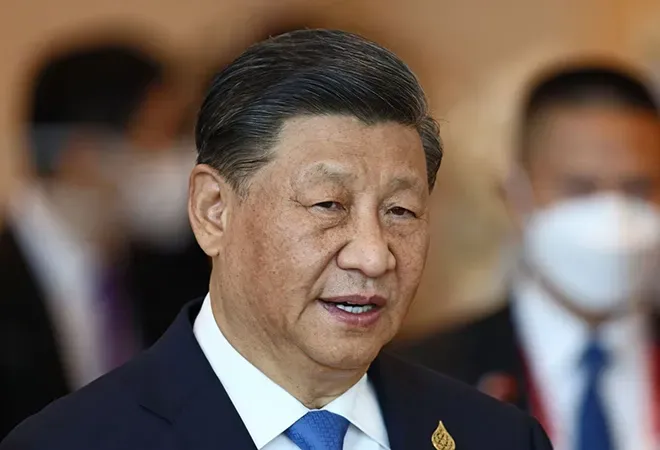- By Shivangi Sharma
- Wed, 02 Jul 2025 06:29 PM (IST)
- Source:JND
In a political system as opaque as China’s, the sudden and unexplained disappearance of President Xi Jinping from public view for 16 days has sparked a wave of speculation. Between May 21 and June 5, 2025, Xi vanished from state media and official events, prompting questions about his hold on power and fears of an internal power shift, possibly even a military coup.
During Xi’s absence, no official engagements or statements emerged. His images were conspicuously missing from state-run newspapers. Stepping into the spotlight in his place were Premier Li Qiang and Vice Premier He Lifeng, who met with foreign delegations and presided over major functions, including swearing-in ceremonies of more than 50 ministers. At one such event on June 6, Xi’s empty chair stood out in an otherwise packed hall.
This silence comes against a backdrop of political unrest and purges. Two of Xi’s previously close allies, former Foreign Minister Qin Gang and former Defence Minister Li Shangfu, were both removed after vanishing from public life. More recently, senior military official He Weidong, once considered close to Xi, was reportedly arrested. The trend is hard to ignore: disappearances, followed by quiet dismissals, and rarely any explanation.
Is Xi Losing Control?
Though Xi retains his formal titles, President, General Secretary of the Communist Party, and Chairman of the Central Military Commission (CMC), insiders suggest his grip is slipping, particularly in the military and economic sectors. Reports indicate General Zhang Youxia, the First Vice Chairman of the CMC and Politburo member, may now be consolidating power, with support from officials aligned with former President Hu Jintao.
ALSO READ: Bangladesh: Sheikh Hasina's Post-Ouster Legal Woes Begin, Gets Six Months In Prisoin | Know Why
Hu himself was publicly humiliated in 2022 when he was unexpectedly escorted out of the CCP’s 20th Congress as Xi watched without intervention. That moment, once dismissed as symbolic, is now viewed by some as a foreshadowing of growing internal tensions.
Factionalism And Reshuffles
In recent months, China has witnessed unprecedented political reshuffles. In April, Politburo members Shi Taifeng and Li Ganjie swapped high-level roles, an uncommon move in CCP hierarchy. Coupled with ongoing corruption probes targeting senior military officials, the reshuffle points to a deeper effort to reshape power centres within the party.
Analysts say Wang Yang, a technocrat and former vice premier, is being quietly groomed as a potential successor to Xi. The marginalisation of “Xi Jinping Thought” from party education and the resurgence of pragmatic leaders suggest that party elders may be preparing to move in a different direction.
While rumours of coups in China are not new, and often dismissed as a Western conspiracy, it’s clear that trust within the ruling elite is eroding. Power appears more centralised yet increasingly unstable. Xi Jinping, once considered untouchable, now finds himself at the centre of a quiet, calculated storm.

